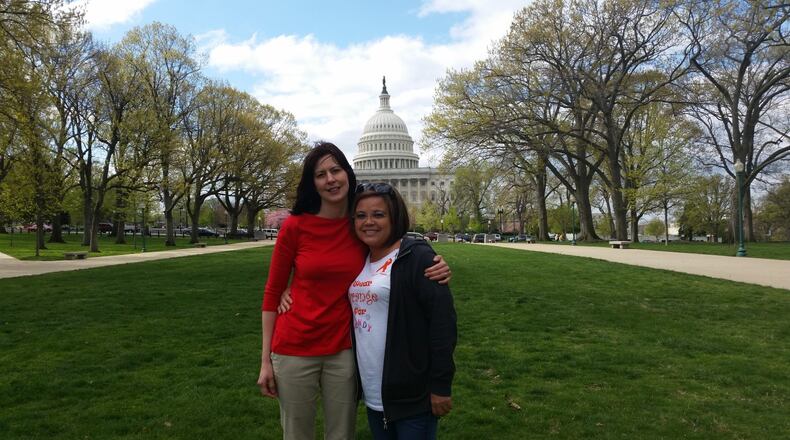The Lejeune Community Assistance Panel that met in Atlanta on Tuesday consisted of a mix of government officials as well as veterans and family members impacted by the toxic water at the base.
One had lost a daughter to childhood leukemia. Another had suffered male breast cancer as an adult. And still another had a heart defect from birth that nearly killed him a few years ago.
One woman nominated at the meeting to rejoin the panel has had two generations of her family impacted. And she worries it won’t stop there.
Lori Freshwater, 48, lived at Camp Lejeune for several years as a child during period when the base water was contaminated. Her mother lost two babies from neural-tube defects during that period.
One was born with spina bifida, paralyzed from the neck down, and died after a month. A second pregnancy ended when an ultrasound found the baby had not developed a cranium. She later miscarried twins.
The losses were too much to bear.
“She never recovered,” Freshwater told the AJC earlier this month. “I don’t think I could either from those losses. It basically took my childhood because she was just shattered mentally.”
Roughly a million people were exposed to the North Carolina base’s toxic water from the 1950s to the 1980s. Many lost babies or became sick from illnesses they say were caused by the water.
Freshwater watched her mother die a painful death in 2013. She was in her early 60s and contracted two types of acute leukemia, neither of which was genetically connected to her family. Freshwater worries about her own health because she has autoimmune conditions that make her more susceptible to developing cancer.
Freshwater, an investigative journalist who has studied the water contamination, believes her problems stem from her childhood years at Lejeune. She knows other classmates from that time who also have chronic health conditions.
“It’s hard to find anyone who is completely healthy that lived on Camp Lejeune,” she said.
Under a 2012 law that extended cost-free health care to Lejeune veterans, immediate family members and dependents harmed can receive limited health benefits. The AJC on Sunday reported concerns from family members that they are not treated fairly by the law, and separate rules enacted last year that extend disability payments to impacted Lejeune veterans.
But the families’ concerns don’t end there. Science has not established if the toxicity can be passed to future generations, but that does little to assuage concerns of family members worried about the impact the toxicity will have on future generations.
Freshwater worries the water she drank decades ago could one day harm her own daughter, who is 19, possibly increasing her cancer risk.
“It’s a kick in the stomach,” she said. “It was a time in my life that I didn’t have a choice where I was going to live.”
About the Author
The Latest
Featured



